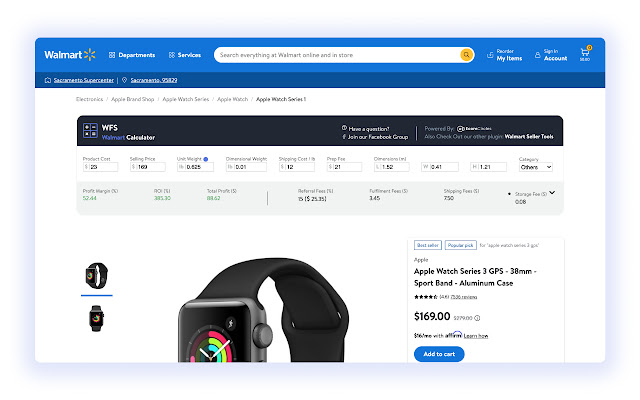
The definitions of retail are becoming more blurred. It covers so many channels and activities that it's difficult to identify a single definition. Merriam-Webster says retail is the business of selling. The endpoint is the private consumer, while the manufacturer is the beginning point. Retail encompasses all channels. But, there is also the supply chain that connects a store with an online shop. This article will focus on the key terms and current trends in retail along with some strategies for success.
Defining retail
There are many ways that retailing can be defined. Traditionally, retail has been defined as a business that sells goods to the general public. Today, retail is available in a variety of formats, including department stores or discounters. All these formats compete on price but there are niche retailers and premium brands as well. There are also niche stores and mass retailers. These are only a few examples of the different types of retailing. They can be helpful in understanding retailing's nature.
Some retail sectors are dominated mostly by global corporations, while others are dominated more by smaller, locally-targeted firms. Large retailers tend to dominate markets. However, smaller retailers are increasingly capturing market share through innovative products that meet local demand and providing superior customer service. Some retailers shrink their business by opening smaller stores or kiosks. Some retailers choose to have a particular store size depending on the city's population. Retail, in general, is a combination of micro and macro-environmental factors.
Retailing occurs on multiple levels. Products are distributed at every stage of the manufacturing chain, from the producer up to the consumer. The retailer is a middle-person, who matches the needs of consumers with those of manufacturers. French retaillier means to cut, split, or sell a piece. Retailing is complex and requires extensive knowledge.
One classic example is the rise of discount stores. In the 1950s in the USA, they entered the retail sector with low status and mark-up. Over time they became high cost, high-priced retailers. Then, their territory became more open to competitors, making them vulnerable for the next innovator. The final decline phase saw non-price competitors become more popular. They also produced higher gross margins. This suggests that non-price rivals are less destructive.
Retail trends
Retailing is one the fastest-growing sectors of the global economy. However, it is still in transition. As the consumer's lifestyle changes in China, South Asia and elsewhere, organized shopping is on the rise. In order to shift towards organized retailing, there are three factors driving this change: rising disposable incomes, urbanization and favorable demographic patterns. Moreover, consumers are increasingly turning to organized retailing for their daily routine needs. Thus, the retail industry in India is going through a sea change.
A major factor that influences retail trends is the aging of the population. Around 22 percent Americans will be older than 60 by 2030. This group is well-known for their love for quality products and exceptional customer service. Retail must adapt to these customers and embrace new technologies in order to stay competitive. How can retailers make consumers happier? Let's examine three of the most coveted trends in retailing. In short, trends in retailing will help brands attract a younger customer base and increase sales.

The retail landscape has been transformed by online shopping. With the internet, manufacturers are able to sell directly to consumers. It has made it easy for consumers to shop online and reduced the need for bricks-and-mortar shops. This trend can, however, compromise one of the retailer's core strengths. Brick-and -mortar stores are prime locations, but can take years of development. A network of strategically-located outlets can give major retailers an enormous competitive edge.
Another trend that will change the landscape of retailing is the rise of multicultural America. Hispanic or Asian children born in 1990s or 2000s will comprise 25 percent of the U.S. Population by 2025. Their presence is felt throughout the country. According to the report, age gaps between generations will grow, creating two distinct "shopping states". Specifically, the financially conservative "over-50s" will compete against the optimistic "under-30s" and the "under-30s" groups. These lifestyle differences, shopping preferences and preferences will all have an impact on the retail market over the next decade.
Principal players in the sector
Globally, retail is highly competitive. It's also mature in developed countries. However, emerging economies like India & Singapore have contributed to the growth of the retail industry. These countries are home to large numbers, which in turn increases the demand for apparel, electronics, fashion, and other products. These countries have more than two-thirds GDP, which is a result of consumer spending. They are therefore a popular destination for shopping in Asia-Pacific. Start-ups also have lucrative opportunities in the retail sector.
As consumers shop online, the number of unorganized retail outlets is decreasing. However, the organized retail market is growing. Big retail chains like Walmart have announced plans to close six locations in Canada by March 2021, but will be investing USD 500 million to modernize their existing stores. These large players must decide where their focus should be and how to achieve success. Retailers must have a strong retail strategy to be successful in this competitive environment.
India's retail market is most prominent in major cities. However smaller towns are also beginning to catch up. Many of these companies want to target second-graded cities in India, like Pune and Ahmedabad. South Indian has taken over the supermarket concept and has had an influence on other cities. This is why these multinationals are investing so much in India. But the future looks bright for India's retail industry.
The Indian retail market is the fifth-largest in the world. The Indian retail market is divided into organized and unorganized sectors. While the former is more popular, it is largely unorganized. India's organized retail market is expected to grow faster that the country's GDP in 2015. This trend could result in more revenue for the industry. If you are looking for a job in retail, this is the right field to pursue.
Ideas for starting a retail business

There are many ways to start a retail store. You need to be familiar with all regulations and laws before you can open your retail business. Each state has its own laws concerning retail businesses. You can visit the website of your state government to learn more about what you need to do in order to open a business legally. Not only should you comply with all applicable regulations and rules, but you must also learn the specifics of each type or retail business you are interested.
The most important tool for any retail business is a point of sale system. If you have an online store, you should consider purchasing employee scheduling software. If you own a brick and mortar store, you will most likely have to hire employees. You have many options to manage these employees. Point of sale systems are one of the most important tools to manage a retail store. However, there are many other tools.
Various types of retail businesses require different steps to start. Some retail businesses require a lot of staff. Others require only a small number. Listed below are 11 steps you'll need to follow to successfully open a retail business. These steps don't necessarily have to be followed in any specific order. If you're unsure of what type of business you'd like to start, make sure to partner with an experienced retail professional to help you get started.
FAQ
How can I avoid getting scammed while shopping online?
It is vital to remain vigilant when buying online. Before you make a purchase online, be sure to read reviews and review the feedback of customers. Never send sensitive financial information via email. Instead, go to a secure site like PayPal. You can be sure that your data is secure by using this site.
Why I shouldn't believe the sale hype in stores and online shops?
Sites sometimes exaggerate the price of an item in order to make it appear that you are spending more. It is up to you, therefore, to ensure that the prices you receive are correct. Simply add the item that interests you to your cart and make sure it does not get lost. After you have done this, Google the name of the designer as well the type product you are looking for. You might be surprised at how much you actually paid for the deal. You might even be able to find the exact same item at a lower price.
Do rewards and insider programmes worth signing up?
While rewards are wonderful, they may not be worth the effort. You should ensure that you receive value when you sign up for an internet program. Be sure to know what you will be spending your time and money on.
If you are signing up for a rewards card just because it has a good signup bonus, be careful. Sometimes these bonuses don't make it worth the trouble of applying.
Also, before joining a rewards program, ask yourself why you want to join. Many people join because their friends do it. You may not be interested in the services or products offered by the company if this is the reason you quit.
Can I get free shipping on orders over $25?
Most major websites allow customers to place orders without having them pay for shipping. Some even offer free shipping on certain items. You must spend at least $25 to qualify for free shipping. Many websites will apply free shipping automatically to your entire cart. Some websites will require that you enter the code "SHIPFREE” during checkout.
Do I really have to register my credit card number online for shopping?
Registering for your credit is optional. It is possible to get discounts or special offers by registering your credit card. It's a good idea that you verify your identity to your bank.
Is it okay to ask for discounts when shopping?
It is a good idea to always negotiate a lower price for items you buy. It is acceptable to ask for discount codes. This will make it easier for them to offer you a discount code. This could save your money over the long term.
What are the advantages and disadvantages of online shopping?
Both consumers and retailers can enjoy many benefits from online shopping. The main benefit is convenience. People can shop anywhere they want. You don't even have to go to stores to look at the products. There are also some drawbacks. Online shoppers don't always know what an item costs before they purchase it. This could make them overspend. Customers might also feel safer shopping in big-box stores because they have the opportunity to see products in person. In addition, if a customer buys something online and then decides not to keep it, he or she won't have a physical copy to return. Additionally, brick-and mortar stores may be under pressure from online shopping because they could lose business to online rivals.
Statistics
- According to the Federal Trade Commission (FTC), online shopping was the fourth most common fraud category for consumers as of February 2022.5 (thebalance.com)
- Your Online Purchases 79% of Americans purchased goods and services online in 2018, which is expected to exceed 90% in 2023. (meetfabric.com)
- Last Black Friday, I bought a stove from Lowes at 40% off, receiving 24 months of interest-free financing (from Lowe's). (meetfabric.com)
- The vast majority only change a password to protect privacy a few times a year (27 percent) or, more likely, never (35 percent). (pcmag.com)
External Links
How To
Online shopping is safe?
Yes! The internet is one the most secure places to conduct business. You can easily protect yourself using security software, and keep your personal data private.
Online shopping is becoming very popular due to the convenience of being able to order exactly what you want from your home.
It is important that you remember that shopping online requires you to use commonsense and to take basic safety precautions.
You should never, for example, give out your credit card information over the telephone or via email unless you initiated it. You should hang up immediately if you get a call from someone pretending that they are your bank.
Never send sensitive information such as account numbers or passwords via email. Instead, log into your accounts using a secure website.
Before you enter any personal information, make sure to inspect your browser's addressbar. Register with the Federal Trade Commission (FTC), or the Better Business Bureau to get free identity theft protection.
These organizations will monitor transactions and notify you if something suspicious occurs.
If someone tries to steal you identity, they will inform you.
To avoid being scammed, here are some tips:
-
Never give financial information by phone or email.
-
Never click on links within unsolicited emails.
-
Do not click on any ads asking for personal information.
-
Never enter your password or pin on a site you haven't created.
-
Before entering personal information, always verify that you are on a valid website.
-
Websites that require personal information to verify their legitimacy are not recommended.
-
Before providing any personal information, please verify the addresses and contact information.
-
Pay attention to hidden charges
-
Keep a record of your receipts to be able to later dispute any unauthorised charges.
-
Report fraudulent activity to the FTC, BBB, your local police department, and/or your state attorney general.
-
Enjoy discounts and offers on online purchases
Electronics, clothing, jewelry books, DVDs and CDs, toys, videogames, tools, appliances, furniture, bedding, etc. can all be reduced at great prices.
The best part is that you can usually save money on shipping costs.
Go ahead, shop online! You'll love how much more convenient it is than shopping at multiple stores to purchase almost everything.
Additionally, you won't be faced with crowds and lines.
You might want to give it another shot.